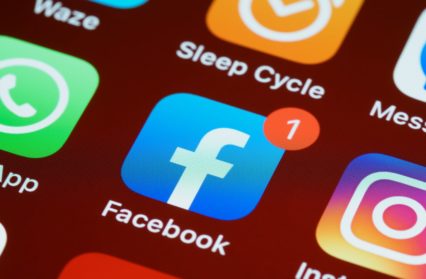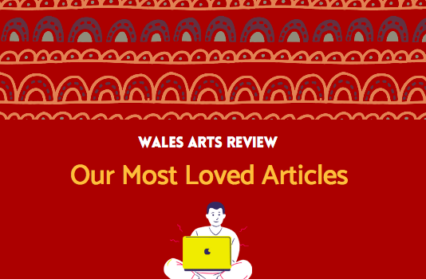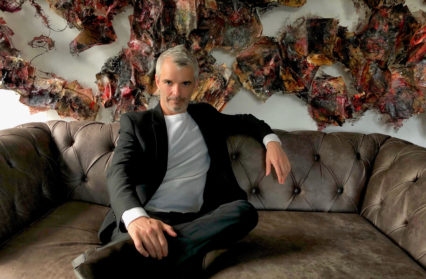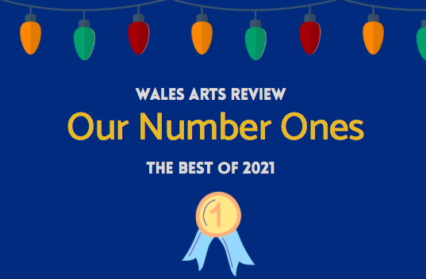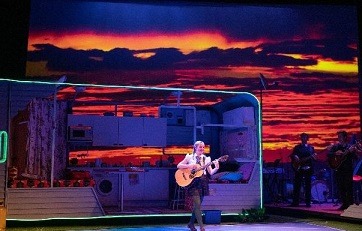Continuing our coverage of theatre for young adults, Helen Sandler takes to Twitter to quiz dramatist Matthew Woolfall-Jones about his imaginative use of social media onstage.
*
How should you behave in the theatre? For those of us who expect to switch off our phones, put them away and sit quietly, Matthew Woolfall-Jones’s play for young adults, Outsiders, is a challenge that both excites and disturbs. ‘Am I really meant to send a tweet in the middle of a scene?’ Yes, you are! You are meant to message the characters, to question or encourage them on their journeys.
Matthew and technology designer David Haylock have done something new, blending video, theatre, gymnastics, social media and live streaming. It makes us ask further questions, such as: Where do theatre and social media intersect? How would young audiences like to engage with plays about their own lives?
Outsiders was performed at Arad Goch in Aberystwyth (where it is set) as part of the Opening Doors Festival earlier this month. Matthew reports that younger members of the audience were not the least bit confused by what was going on or what was expected of them. They are used to moving between and within media and reacting to several stimuli at once. While older theatre-goers may feel ‘wrong’ as they pull out their phones, Math is aware of a longer history.
‘Who says you have to sit there and be quiet?’ he asks. ‘In Shakespeare’s day you would have thrown tomatoes.’
The play brings together three teenage characters (played by three strong Welsh actors) who each feel isolated. Seren (played by Mari Elen) is an Aberystwyth girl who acts as carer for her mother and finds it all too much. She has a politicised view of her own identity, seeing the Welsh people as a misunderstood minority. And Osian (Gwion Llŷr) is a local lad into parkour (free running), who cannot admit to fancying boys and instead finds himself going out with Seren.
On a blogging site for outsiders, the couple meet Sam (played by Guto Rhun): a motherless, urban guy who seems disturbed and alienated. Sam found a brief sense of belonging while caught up in looting, from which he gained only a multi-pack of crisps. ‘Not even Walkers,’ he jokes, as he is filmed onstage and his face appears on a big screen, superimposed over fiery news footage of the 2011 riots.
Feelings intensify when Sam travels from England to meet Seren and Osian and the trio are faced with coincidences and misunderstandings; but this is a play that is more about finding oneself than solving puzzles.
Writer/director Math and tech wizard David are both PhD students at Aberystwyth University who wanted to push the boundaries of technology in theatre. They developed the piece with help from Cwmni Theatr Arad Goch. In the spirit of their production, I took to Twitter to interview Math – with David joining us along the way and an interested observer, Chantel Mathias, chipping in with further questions.
The ‘Twitterview’ format was fun but inevitably had its limitations. Although we had agreed that more than one tweet would be needed for a longer answer, at times it took six or seven. (These multiples are indicated with ellipses.) What follows is a lightly edited version of our conversation, which filled a lively hour of Easter Monday.
*
Wales Arts Review: @math_jones Why did you choose outsiders as the theme for this play?
Matthew Woolfall-Jones (@math_jones): @WalesArtsReview I think it’s a universally relevant theme, especially for young people. We all feel like we want to belong sometimes… and when you’re young, it’s incredibly obvious if you’re excluded from a group… All the characters want to belong in some way. That’s why they latch on to each other… They all give each other a sense of being wanted.
WAR: Why did you ask the audience to send tweets to the characters during the play?
Math: I started with the idea of incorporating digital media into the theatre, but I didn’t want it to be a 2D use of technology… Again, thinking about how we all want to feel part of something, my tech partner @david_haylock and I tried to rethink… the role of an audience member in Outsiders. By being able to message, the audience can influence the characters… provoke them. The audience hopefully feel an affinity with the characters because they have contributed to their story… It comes down to being part of something again. Part of an audience, part of the character’s world.
Chantel Mathias (@chantelmathias): How did it work out? Were tweets vetted or prepared in advance?
David Haylock (@david_haylock): Mind if I answer this one? The tweets were all real-time actions… We tried to let an organic conversation emerge through the tweets, which was not prompted.
Math: We had iPods with a special Twitter account on them – the audience tweeted questions/comments to the characters [from these iPods or their own phones]… There was a swear filter, but not much else! The comments were shown live on screen – a risky business!
WAR: And did you get tweets you’d rather not have got?
Math: Well, we were asking the audience to play a game they hadn’t before, so responses were varied! In one performance… people played along, gave advice and support to characters; in another we had people taking the mick – almost cyberbullying.
Chantel: And so actors had to respond there and then? How did the Twitter session come to an end?
Math: It had an over-arching narrative – the actors knew where their characters would end up, sort of… they used the tweets on screen to lead them on that journey.
WAR: So it was an experiment. And were you happy with the outcome or would you make any changes?
Math: I was incredibly happy. Even when things go wrong, it shows you how to tighten it up. I would probably change elements… The free-flowing conversation is what makes every performance unique, so I worry about filtering responses… We were reluctant to censor the conversation, but there’s possibly a way of presenting messages in a more linear fashion… such as letting the Twitter responses be shown at more specific points in the performance… maybe presenting them all to the audience at the end… But how to do this in a way that doesn’t make the technology an add-on? It has to be a core element… The hope was always that digital technology and theatre would share equal status on the stage.
Chantel: Wish I’d seen it!
WAR: @david_haylock Did you develop brand new technology for this play?
David: What was great about the production was that @math_jones was really open to new technologies. The first experiments… we built an iPhone app that communicated with some software we wrote. These were all specific to Outsiders… so it was a blend of emerging and existing technologies.
WAR: It felt like a new interactive form developing… I suppose @math_jones I did worry about young gay audience members seeing anti-gay tweets on screen, potentially.
Math: Yes, I did worry about that as well. There was some ‘casual homophobia’ contributed by some audience members… That is not acceptable. Maybe, if the audience were not anonymous, they might have taken a bit more time to respond… But the anonymity is also a major part of the aesthetic. The audience are one big group, with varying attitudes… Would Seren, Osian and Sam even want to be part of that crowd? They look to them for reassurance… though it’s not always given… More prompts by the characters about what questions they wanted to have answered might have stopped the deviation.
WAR: @david_haylock, when the actors talk into camera and appear on screen at once, what does it represent?
David: For me, it was to make the audience more comfortable with the situation we put them in… via the association with online forums, chatrooms.
Math: The characters meet in an internet forum, so the context in which they contribute videos is quite familiar.
WAR: So @math_jones you are still thinking and developing. Will the play tour now?
Math: With every showing comes ideas on how to improve. @AradGoch are interested in touring it… I would like to improve it again, taking into account all the issues it raised… I’m happy it did. It’s a play about young people for young people. So I’m excited that more people will be able to see it… Who better to help me bring it to a wide audience than Wales’s most prolific company for young people, @AradGoch?
WAR: Let’s sign off by telling people how they can keep up with the project online.
Math: You could follow @SamTheOutsider @SerenOutsider or @OsianOutsider – they will be tweeting in the future I’m sure… My hope is their story could live on in different forums. The theatre and internet are their main stomping-grounds… The beauty of each context is different. One offers a unique, one-off experience, the other can go on and on… Let’s see where it goes!
WAR: @math_jones @david_haylock Diolch yn fawr. You’ve contributed to another developing form – the Twitter interview.




